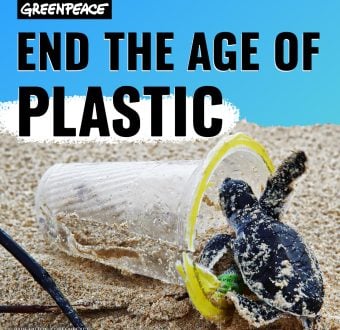Human rights experts from The United Nations Human Rights Council released a statement raising “serious concerns” about further industrialization of Cancer Alley in Louisiana, saying that the “development of petrochemical complexes is a form of environmental racism.” The statement comes after years of campaigning by Louisiana residents and the submission of a letter led by Loyola law students to the United Nations Special Rapporteur on contemporary forms of racism, racial discrimination, xenophobia, and related intolerance late last year.
In response Greenpeace USA Oceans Campaign Director John Hocevar said:
“Climate destruction and plastic pollution are only possible in a world in which racism is tolerated. It should not take a visit from the United Nations Human Rights Council for Coke, Pepsi, Proctor and Gamble and other throwaway plastic barons to recognize their impact on communities of color. The institutional racism integral to the creation and continued operation of Cancer Alley has been called out by community activists for decades.
“We know that plastic production has disproportionate impacts on low-income and marginalized communities and it is unconscionable to allow sites like the Formosa Plastics mega-complex to exist and to continue expanding. People in Louisiana and all over the world have a right to live without worrying about getting cancer because of the greed of fossil fuel and petrochemical corporations. We cannot allow the health of these communities to be sacrificed for single-use packaging that isn’t needed in the first place.”
Media Contact:
Capucine Dayen, Greenpeace USA Global Comms Lead for Plastics: +33 647 971 819, [email protected]





